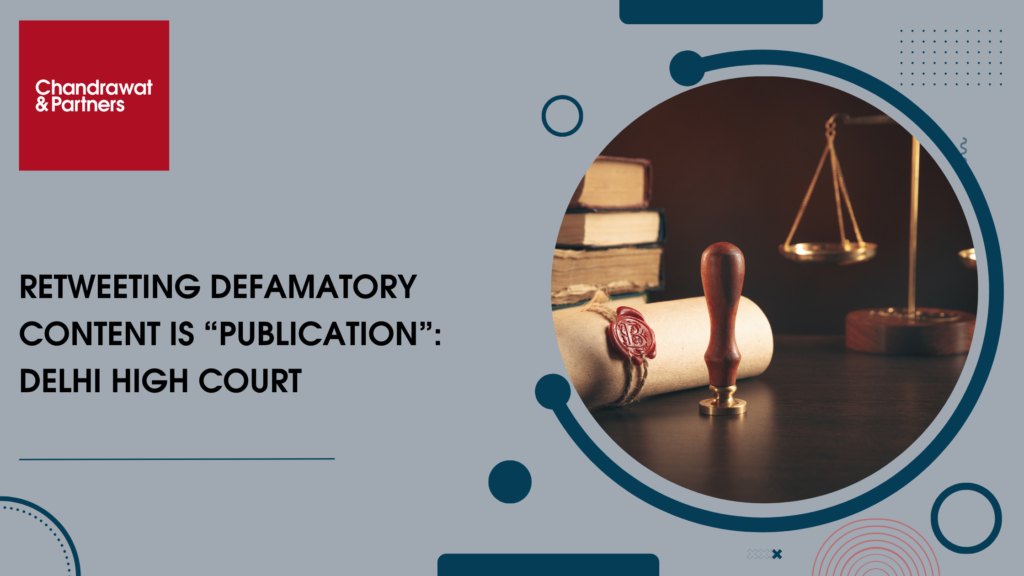Share :
Arvind Kejriwal v. State & Anr.
Introduction
A notable defamation case happened recently which affected many well-known personalities including the Chief Minister of Delhi. Justice Swarana Kanta Sharma, the judge of the Delhi High Court upheld a trial court’s order summoning Arvind Kejriwal in a criminal defamation case for retweeting a purportedly controversial and defamatory video that YouTuber Dhruv Rathee had posted in May 2018.
On July 17, 2019, Arvind Kejriwal received the summon. Delhi High Court refused to quash summons against the Chief Minister of Delhi, Mr. Arvind Kejriwal in this defamation case.
Case Analysis
On Monday i.e. 5th Feb 2024, the Delhi High Court held that any repost of offensive material on social media would be considered “publication” and would be liable for the criminal defamation under Section 499 of the Indian Penal Code, 1860.
The ‘I Support Narendra Modi’ social media page founder and alleged supporter of Prime Minister Narendra Modi, Vikas Sankrityan, also goes by Vikas Pandey, filed the complaint. In the video, Dhruv Rathee claimed that Vikas Pandey was the second-in-command of the BJP (“Bhartiya Janta Party”) IT cell and that he had offered Mahavir Prasad Rs. 50 lakhs in exchange for him withdrawing charges that he had circulated false information and lies about the ruling party’s IT unit.
Arvind Kejriwal defended himself by saying that Vikas Pandey’s failure to bring charges against Dhruv Rathee, the video’s original creator, and other users who liked, retweeted, and commented on it showed enmity on Vikas Pandey’s part. Arvind Kejriwal’s attorney opposed the defamation lawsuit on the grounds that there was “no evidence” demonstrating the Delhi CM’s intention to damage Vikas Pandey’s character.
The court dismissed Arvind Kejriwal’s appeal, stating that Arvind Kejriwal knew the consequences of retweeting the video and had a significant Twitter following.
Statement made by the Delhi High Court
The high court stated that, one must have a sense of responsibility before retweeting any content that one does not know about. It further stated that retweeting defamatory content must invite criminal, civil, and tort proceedings if the person doing so does not provide a disclaimer.
“While the petitioner may plead absence of any malicious intent in the act of retweeting, the Court has to consider the responsibility that accompanies the petitioner’s political and social standing. Needless to say, the large social media following of a Chief Minister of a State undoubtedly implies a wider reach, making any retweet a form of public endorsement or acknowledgment,” the court said.
The court stated that in this rapidly changing digital age, reputational harm can result from more than just physical hurt; in fact, the real world has given way to the cyber universe, where negative remarks can have a magnified effect on someone’s reputation.
“In the realm of defamation, statements made in the physical world may resemble a mere whisper, but when echoed in the cyber domain, the impact magnifies exponentially,” it added.
In addressing a democratic community, it is crucial to emphasise that freedom of speech, while a fundamental right, does not grant individuals the licence to inflict harm or tarnish the reputation of others, it said.
While granting equal protection, the court added that it must strike a balance between the right to freedom of speech and the need to avoid unjustified reputational harm. It further stated that making false statements that will undoubtedly lead to defamation and reputation loss.
It stated that while tweets can be removed, community perceptions are harder to remove from memory, making reputational harm hard to completely erase from public memory at times.
Is a Retweet “Publication”?
In its order, the Delhi HC said it was now examining “whether ‘retweeting’ any defamatory content will be covered in the meaning of ‘publication’ or not” under Section 499 of the IPC. It also said that it was looking into whether the person who retweeted the content could take the defence that he was not the original author of the content.
Under Section 499 of the Indian Penal Code, retweeting offensive content is considered as defamation. The court highlights the importance of exercising responsibility through social media retweets. It claims that public endorsements and greater influence are associated with political personalities’ retweets. The court further emphasises how crucial it is to look at publication theory in relation to virtual platforms.
The aggrieved party must ultimately determine “which retweet caused more harm to his reputation, lowered his ethics or intellectual character or credibility among the members of society,” the High Court stated, even though “every retweet of defamatory imputation would ordinarily amount to ‘publication’ under IPC Section 499.” “The trial court shall identify based on the material before it, whether the retweet had the potential to defame the complainant,” the court ruled.
Conclusion
This case is a fair warning to those who post defamatory sentences and share such articles about people and question their reputation knowingly or unknowingly. Special highlight and focus always remains on the well-known personalities whose one statement or a post or a tweet or a retweet may affect the other party’s reputation for a very long period of time.
Thus, “In the realm of defamation, statements made in the physical world may resemble a mere whisper, but when echoed in the cyber domain, the impact magnifies exponentially.”
For more information or queries, please email us at
[email protected]





